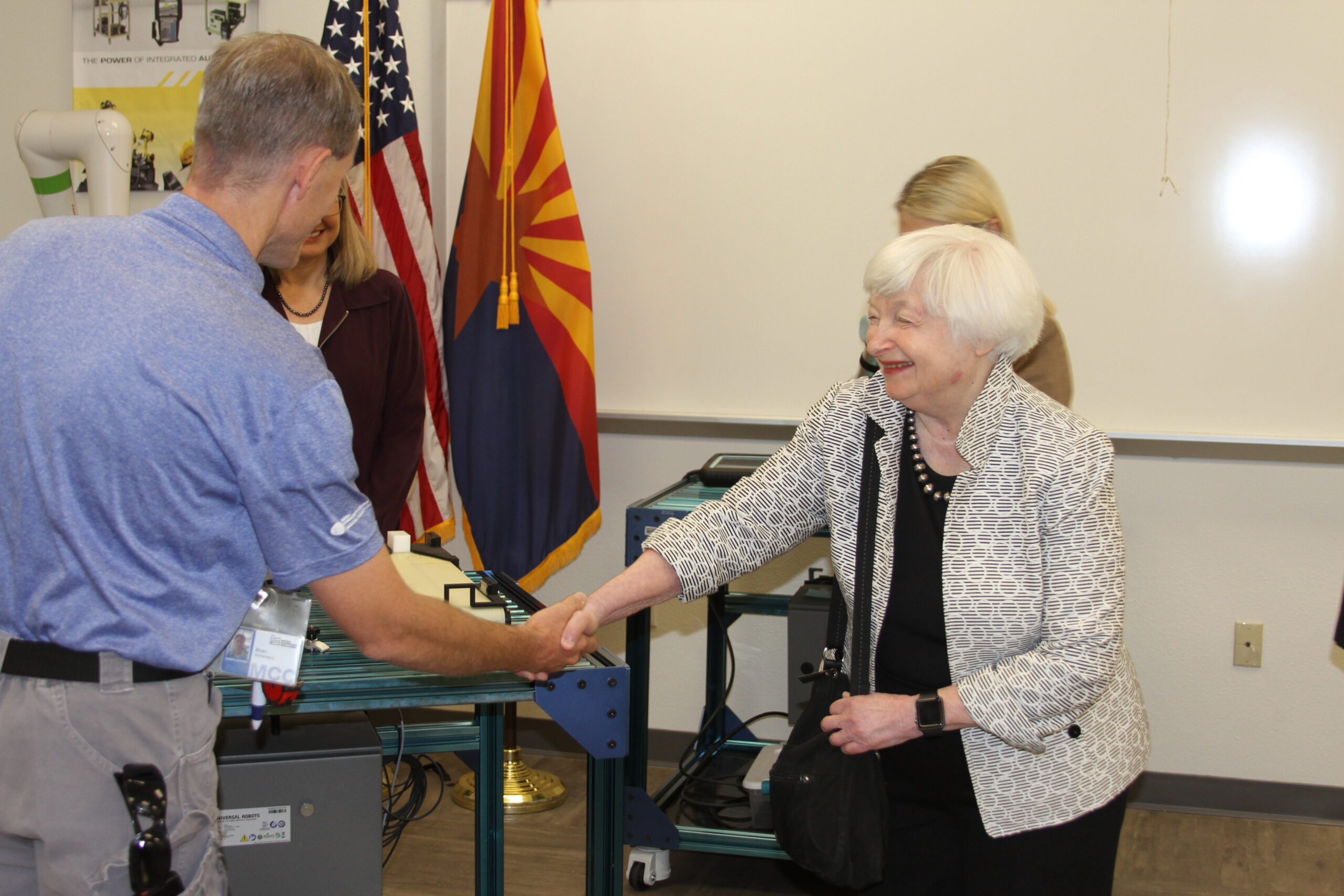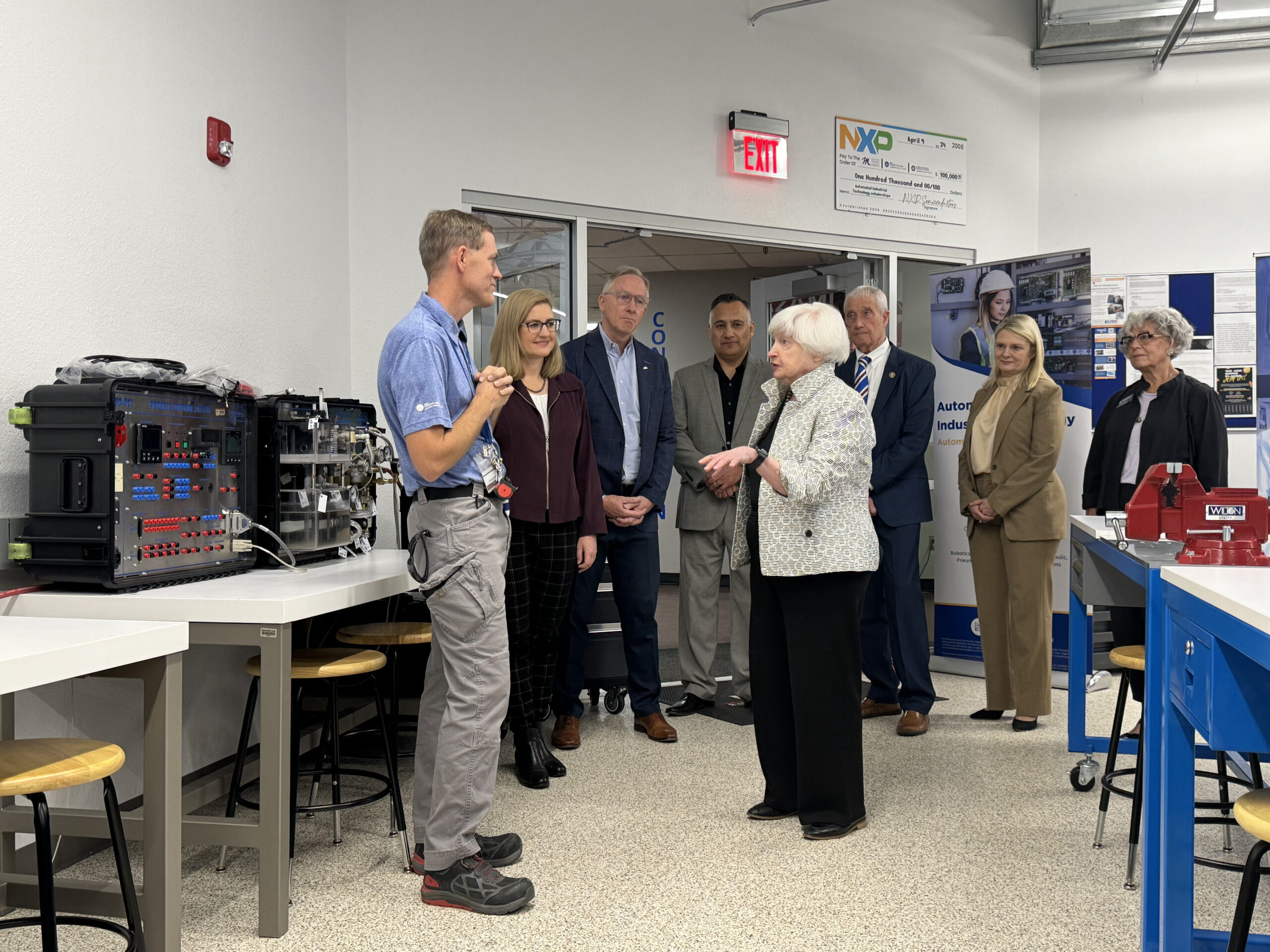Tough choices exist for Alzheimer’s patients’ families
Diana Martinez
Mesa Legend
“If the sky is purple for them, we have to agree that the sky is purple,” Melissa Phillips said. Phillips has been working at an assisted living center for Alzheimer’s patients in Mesa for the last 12 years. According to Phillips, caring for a person with Alzheimer’s is difficult on families because they often feel guilty, or they are in denial and they do not want to “leave them” until they are in the later stages of Alzheimer’s.She also said that her job requires a lot of patience and training.

Employees must undergo hours of video showing the effects of the disease so that they are mentally prepared for the day-to-day routine with the patients. The way that Alzheimer’s affects the brain is that it often recalls the earliest memory. “It is not uncommon to see some of our patients — old women — holding a baby doll as they relive some of their childhood memories. Those are the last memories to go, our very first human memories as a kid,” Phillips said. There are also a number of people who can get aggressive. “I remember one time I was working in my office, when one of the older men hit a nurse because she was trying to put him in the shower,” Phillips said.
At Fellowship Square in Mesa, many of the patients in the later stages of Alzheimer’s forget how to eat and swallow.
The staff teaches the patients daily, to remind them how to eat with a method called “hand over hand,” just as a parent would teach a child. There is, as of yet, no known medicine to slow down, stop, or prevent Alzheimer’s. But there are some drugs, as well as certain therapeutic practices, that can mask their symptoms. “Memory games, like trivia, anything tactical, it is good for them. Coloring is very good for them as well,” Phillips said. “Also music has a huge effect on them,” Phillips said. Dr. Jayantibhai Patel, a neurologist with over 20 years of experience, said that currently there are only two tests available to conclusively detect Alzheimer’s — a biopsy and an autopsy.
“Unfortunately doctors prefer not perform these tests on the patients.” Dr. Patel, however, takes a different approach. First, he evaluates the patient’s behavior and mood, bringing in the patient’s family to talk about mood changes. Dr. Patel then tries to see if the patient has impaired memory. Lastly, he gives the patient a problem, and see how he or she resolves it. “There are different stages of Alzheimer’s,” Dr. Patel said. “It starts with something small.” Patients will find it difficult to concentrate on a task. Next they begin to forget why they are doing something, or why they are in a particular place, followed by forgetting common vocabulary words.
“All these problems, and others, I believe, can be very frustrating. This is what changes their mood and behavior,” Dr. Patel said. “I knew something was not good when my mother would call me at 10 p.m. saying her house was full of people that she didn’t know,” Cheri Sanders said. “I made the 10 hour drive and realized that she confused the voices from the television with real people, and imagined that her house was full of people.” Sanders, whose mother recently died of Alzheimer’s, had been taking care of her for the past 8 years. “She started to forget everything — where she was, why she was there, how to get home and things like that,” Sanders said. “I just couldn’t watch her 24 hours a day, which is what she needed,” Sanders continued.
It was a difficult decision, but Sanders admitted her mother to receive care from an assisted living home. After her mother passed away, Sanders was able to reflect on the experience. “I grew so much in the last 8 years. It was like my mom’s parting lesson for me,” Sanders explained. “I am really thankful for that time, even though it was so difficult.”
Irene Longoria has the beginning stages of Alzheimer’s. Her husband died 4 years ago, and she now lives with her daughter. “I cry a lot. I have seen a lot of people with Alzheimer’s and I know exactly what is in store for me and my family,” Longoria said.
Her daughter, Maria Flores, takes her to a daycare center during the day, so she is being observed by someone at all times. “It is almost harder because she is aware of everything for the most part,” Flores said. “And she doesn’t want to be a burden on anyone, or put herself or her family through this.” Irene says that she isn’t mad at her family for taking her to the center. “No, I am not angry with them,” Longoria said. “I get angry when people ask me simple things… because I know I will no longer know the answers.”









